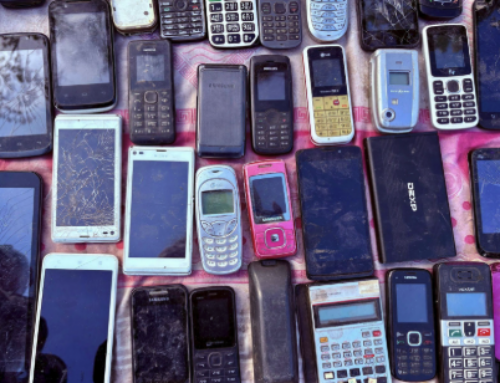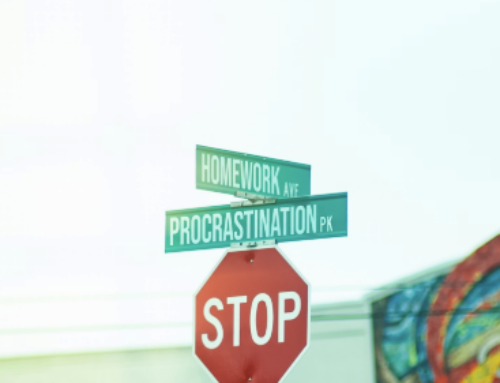 Social media and the isolation of the pandemic have altered every aspect of reading for the general public. No matter where you look—Youtube, Instagram, TikTok and even X—all have thriving communities of readers who recommend each other books, discuss the newest flashy fiction release, and build their personal libraries. Videos with trope-based recommendations, massive book hauls, and gargantuan reading goals are the norm. It’s a bright, welcoming place that has rescued the publishing industry, and initiated so many people into a reading culture.[1]
Social media and the isolation of the pandemic have altered every aspect of reading for the general public. No matter where you look—Youtube, Instagram, TikTok and even X—all have thriving communities of readers who recommend each other books, discuss the newest flashy fiction release, and build their personal libraries. Videos with trope-based recommendations, massive book hauls, and gargantuan reading goals are the norm. It’s a bright, welcoming place that has rescued the publishing industry, and initiated so many people into a reading culture.[1]
These platforms have made books and reading more appealing than ever to the masses. Book influencers stand in front of gorgeous floor to ceiling bookshelves and tell you about what’s fresh and what’s coming. Others show their cozy, calming, reading routine and the results of these sessions in the hundreds of sticky tabs, colorful witty annotations in the margins or e-reader notes, and empty tea mugs. And finally, there’s the “reading wrap up graphics”, where bookworms show off the dozen or more books they read every month. Who wouldn’t want to be a part of such a beautiful thing? It has made a very large community out of reading and collecting books, one that has pumped blood into the nearly dried up veins of many publishing houses and brick and mortar stores.
The way that these influencers—and regular users, too—promote and recommend books has resulted in a financial boom for the sector. In 2022, For the first time in the history of the company Simon & Schuster reached the billion-dollar mark in their revenue. Barnes and Noble also had hit billions in revenue that same year, and began to install more brick and mortar stores after closures in previous years.[2] It has also encouraged the use of independent bookstores and helped these small businesses thrive. Books and reading have become a very lucrative industry once again.
Despite its beauty, and the positive impact it has had, these online book spaces, particularly BookTok and Bookstagram, come with some challenges and have provoked less desired habits.
The concerns all have one thing in common: quantity over quality. First and foremost, is the overconsumption of books through “book hauls.”[3] These are exactly what they sound like, someone has purchased books—usually a large amount— and is now sharing what they bought with their viewers. Sadly, the chances that all of these will be read at least once, let alone multiple times is incredibly low. It’s so unlikely that “un-hauls” exist. Purchasing books has, in of itself, become a separate facet of being a reader, and not in the sense of being a book collector. Collections take a lifetime to build, and are usually the result of careful perusing—that is mostly not what is happening on BookTok or Bookstagram.[4] Most users, both the ones promoting the content and the ones consuming it, buy books indiscriminately. There have been many instances of jaded readers who thought a book was about something based on the snazzy keywords used to promote it, and because they did not do further research or read a more in-depth summary, they were either extremely disappointed, regretful or even a little shaken up by the contents of the book. Some have an “auto-buy” policy for certain authors or common tropes, and others will purchase multiple editions of the same book—regardless of whether they’ve read or like its content.[3] And those that flaunt rows and rows of books on their shelves? Most of them are unread, and will unfortunately likely remain that way.
Being a part of a reading community has become less about actually reading books and more about mindless possession. The reality is that many of these books will end up at overcrowded second hand stores, library sales, and worst of all, in landfills.[3]
Another issue that goes hand in hand with mass-buying books, is the competitive edge social media platforms have added to the act of reading. Tracking how many books you read has been around for a while, but it used to be that only you and your friends would follow each other, set realistic goals, watch your circle follow through, and interact with each other. Those days are gone. Weekly and monthly reading updates from BookTokers and Bookstagrammers showcase the large quantity of books they eat through in very little time. Barry Pierce in an article for GQ magazine said it best: they are more concerned with being readers, than reading.[5] They want their reading stats to be impressive; it’s not just book count but page counts and audiobook hour trackers as well.[1] It’s validation.
The third issue, and perhaps the most controversial one, is the manner in which books are now promoted and the effect that they have. The focus has shifted from promoting a book for what it has to say, for the story it contains, and the development of characters and worlds to eye-catching one liners that often misrepresent the text, or a list of other books it can compare to but really, it cannot.[6] Every aspect of a story is reduced to tropes, and for some books, all there is is tropes and some sentences barely tying the whole thing together.
There is nothing wrong with reading books that are marketed in this manner or reading books that are deemed “easy.” The issue arises when readers “turn their brain off” while reading—which is another way of saying that they are not thinking critically about what they are reading.[7] No matter what type of media you are consuming, it’s important to exercise media literacy, and the way that BookTok and Bookstagram encourage the consumption of books hinders your ability to do so.[6] If you are not seeing beyond the stereotypes that characters represent, or are deliberately only reading the same set of situations over and over again, you’re not learning or absorbing anything of consequence after the first couple of stories. You’re not being challenged by new people, places, and stories—there’s no growth.
There are different reasons why people are so susceptible to these trends. First, there’s the cultural capital.[4] Having lots of books and reading lots of books regardless of individual content gives you status—it makes people perceive you as a reader, and by extension, smarter.[8] Or other positive notions. Another issue is the instant gratification that comes from buying a book and making progress or completing a reading challenge. Lastly, there’s the unfortunate idea that books should be treated like fast food. People consume books with little care for what the stories have to say, or lack thereof.
But there are small changes that you can make in order to combat this! Being more mindful about what you read is a good start. If we carefully peruse shelves or digital lists, read descriptions and reviews, we can ensure that the book you are likely to purchase and read will be worthwhile for you. Limit yourself to only buying a few books a year or only buying the books that you truly loved—it will feel so much better to look upon a shelf full of books with fond memories rather than abstract plots and shiny spines.[4] Make good use of libraries, or your friends’ collections. And as far as reading speed, stop comparing yourself to other people! Read for yourself! Read because you like the book. Read it fast because you can’t get enough, not because you have a never ending list to get through. Savor the journey, and forget the rest.
[1] https://realmofreads.com/booktok-overconsumption/
[2] https://companiesmarketcap.com/barnes-noble-education/revenue/
[3] https://chireviewofbooks.com/2023/12/07/book-waste-the-dangers-of-publishing-and-the-ethical-consumption-of-books/
[4] https://www.michigandaily.com/arts/books/my-problem-with-book-influencers/
[5] https://www.gq-magazine.co.uk/culture/article/booktok-tiktok-books-community
[6] https://www.trillmag.com/culture/the-booktok-dilemma-overconsumption-and-media-literacy/
[7] https://www.jhunewsletter.com/article/2024/02/how-can-reading-make-you-dumber-booktok-makes-that-possible
[8] https://bookriot.com/overconsumption-of-books/
Photo free to use under Unsplash license.



